Strictly Personal
Akudaaya: Tinubu, Abacha and Shettima’s theory of ruthless leadership by Festus Adebayo
Published
2 years agoon

In what seems to affirm that he wears controversies like apparel, vice presidential candidate of the All Progressives Party (APC), Kashim Shettima, leapt into yet another at the twilight of last week. On Thursday at the 96th-anniversary celebration of the Yoruba Tennis Club in Ikoyi, Lagos state, Shettima was quoted to have said that Nigeria needed the “hospitality” of General Sani Abacha, Nigeria’s despotic military ruler; Nigeria’s own contribution to the list of infamous rulers who ruled the world with infernal ruthlessness.
As the controversy over what he actually said raged, Shettima came out with a clarification: He actually said that in 2023, Nigeria needed a president who possessed “a dose of ruthlessness and taciturnity”. Nigerians have since been engaged in dissecting what lay atop the mind of a man who could be the country’s vice president. “We need a leader with a dose of ruthlessness and taciturnity of General Sani Abacha… Nice men do not make leaders… There is no one, with all due respect, that fits this better than Asiwaju Bola Ahmed Tinubu,” he said.
In a subsequent clarification made on his Twitter handle, Shettima claimed that the report that he attributed hospitality to Abacha didn’t only quote him out of context, it was the continuation of an “obsession with distorting one’s views to settle partisan scores”. What he actually meant, maintained the former Borno state governor, was that Nigeria needed a ruthless president in the mould of Abacha so as to address the insecurity menace it faces. “I never attributed hospitality to Abacha in my speech. I did a rundown of our past presidents and played up the taciturnity and a dose of the ruthlessness of a Sani Abacha to show we need strongmen to deal with the non-state actors who’ve turned Nigeria into a vast killing field,” he continued.
Shettima’s pontification and equivocation about Sani Abacha remind me of this subsisting theory about the intrusion of the dead into the lives of the living and how the dead, whose lives were terminated abruptly, can, through the transmigration of souls, continue to fulfil their abrogated destinies in another form. At a point when necromantic pundits submitted that President Muhammadu Buhari had but few hours to live and could not return alive from his UK infirmary where he had gone to receive treatment, his return spurned the major theory that he had in fact died in the United Kingdom. Continuing the theory, a lookalike Jibril or Jubril of Sudan was procured as his placeholder. Of all his sins against the “state”, Nnamdi Kanu’s most unpardonable against Buhari will seem to be that he took this necromantic pontification to a soberingly believable height.
A couple of weeks ago, unknown to him, I presume, medical practitioner and activist, Mahdi Shehu, also provoked the concept of death or what the Yoruba call akudaaya. I will explain it presently. On an Arise TV interview programme, Shehu had flogged what was, in the opinion of the APC and its 2023 presidential campaign team, a dead horse by raising a couple of critical questions that border on the educational and health history of Bola Tinubu, the party’s presidential candidate. In the TV interview, Shehu submitted that Nigerians are in search of the identity of the true Tinubu. Some fundamental questions, he said, were in urgent need of answers.
“We have searched the secret file of Bola Tinubu and we are asking, Bola Tinubu, please tell Nigerians, what is the name of the primary school you attended? Who were your classmates, dead or alive? If you can’t remember them at least you can remember the name of your own headmaster. If you can’t remember them, tell us in which town, maybe the school has been overrun by reconstructions of Lagos state or Ibadan or Oyo, Ondo. Who were your mates in secondary school? What is the name of the secondary school you attended? Who was your mathematics teacher, you said you were a good mathematics student?” Shehu had asked on and on.
Was Shehu suggesting that the APC presidential candidate was an akudaaya? Or put differently, will a suggestion that Bola Tinubu is probably an akudaaya answer to the hovering spirit of his APC-irritating questions? A few weeks ago, Dele Alake defended these same Shehu allegations with outright lies and spewed disingenuous concoctions in the laundry of this Lagos contraption in a glib intervention on a Channels TV programme. Rather than that laborious journey of untruth, couldn’t he have manoeuvred out of the bundle of lies by simply embracing the akudaaya phenomenon and stating simply that Tinubu died after those primary and secondary school years and just transmigrated into a new soul? As I will state underleaf, there are people who live today and who are presumed to be akudaaya. The akudaaya phenomenon lacks empiricism, though supported by long-held beliefs and assumptions. Alake would have been more believable if he entered the world of nil empiricism to support his drudgery than manipulating Nigerians’ knowledge of an issue that is raging in the public domain.
So let me quickly dwell on the phenomenon of life after death, a subject that has engaged philosophy and religion over the centuries. Curiosity about what happens when a man dies is a universal phenomenon. To man, sudden cessation of life and living is absurd. Man thus wants to know what transpires after consciousness ceases. Man is baffled that maggots, decay and smell take over an otherwise admirable body. Greek philosophers, Plato and Socrates tried to offer an explanation. Plato, for instance, gave a clear demarcation between the body and the soul, submitting that there is an immortality of the soul. His argument is that because the soul is immortal, it survives death’s lieutenants – rigor mortis and decay – who feast on the body after the cessation of breath and collapse of the functions of all organs of the body. Pythagoras and Empedocles submit that people are reborn in accordance with the merits of the lives they live, whether as humans or animals and can be reborn as vegetables. This belief was rampant in Rome and Africa, giving birth to the concept of apotheosis. In apotheosis, human beings are deified after their death and given god-like status. In ancient Greece, some founders of cities like Romulus were elevated to the level of god at death. This led to the deification of Roman Emperors Julius and Augustus Caesar. In Africa’s Oyo Empire, King Sango became a deity at death and is today held as an ancestor.
Christian and Islamic theologians will hear none of those. After death comes judgment, they say. To them, the process of living and dying is a singular, mono-occurrence. African epistemology took that fear and curiosity of death to another plane. In Yoruba’s theory of knowledge, for instance, a few concepts were designed to answer this curiosity about the afterlife. The prominent ones among them are the theories of transmigration of souls called akudaaya and reincarnation afterlife. While akudaaya is a doctrine that holds that at death, the soul moves into another body, human or animal, the afterlife holds that at death, benevolent leaders, called ancestors, continue to live, superintending over the welfare of their offspring. Akudaaya is he who enters the town midday… no one knows his last place of habitat nor the bird that laid his last egg. Akudaaya has no family, no foe, and is sired by nobody. Reincarnation on its own believes that after death, Plato’s immortal soul leaves the body and begins another life in another physical body.
Of all these, the theory of akudaaya has been held to be the most controversial. It is a phenomenon that describes how the dead return to life, appear to man to carry out unfinished assignments, and most times, sojourn in another territory. Religionists are vehemently engaged in disputations about the existence of akudaaya because it nullifies the main foundation of their belief. To them, death is not only irreversible, it is the cessation of life. However, akudaaya affirms the continuation of life after death and a linkage between unfulfilled destiny and death by seeking to resolve the conflict between them.
There have been several stories of people having encounters with certified dead persons – and who have been affirmed not to be hallucinating – carrying out the usual physical interactions with them. At the point of discovery that they had once lived and died, the dead disappear into thin air. A journalist once undertook to go to a place that is the town of the dead and interviewed people there. They confirmed that the dead live their normal lives in the town. Nollywood movies escalate this ancient Yoruba belief by churning out films which affirm that the mysterious phenomenon is an everyday life narrative among the Yoruba.
Most often, the akudaaya are said to be dead persons whose lives were cut short prematurely and who seek fulfillment of their destinies somewhere else. The belief is also that the ori – destiny of the dead person while alive — got terminated abruptly by an individual or circumstance and so as to fulfill the corpus of that destiny, he relocates at death to another locale to fulfill that destiny. They thus reincarnate in another body but with similar physical features as they bore pre-death.
So even though the narratives are engaging, sometimes very logical and even temptingly believable, the afterlife phenomenon is still in the realm of conjecture. For science and its verifiable principles, akudaaya fails woefully. Science dwells on seven essential principles of verifiability and they are the principle of universal open access, the principle of open licensing, the principle of rigorous and ongoing peer review, the principle of supporting metadata, the principle of access by future generations, the principle of respecting various publication traditions and principle of grasping opportunities. Akudaaya cannot fulfil even one of those. It is however supported by age-long beliefs, tradition and norms.
Shettima will seem to believe, in his nostalgia for Sani Abacha’s “ruthlessness and taciturnity” that though he died in 1998 in unexplained circumstances, the late despot can continue to live in our hearts and our polity as an akudaaya. It is curious that though Abacha is a pariah in the hearts of the world, judging by his unexampled notoriety and thirst for blood, today, he is a besotted jewel in many parts of the north. Recall that even Buhari frowned at labelling Abacha as a looter of the Nigerian economy. He has been too lip-tied to apologize for his blind, nepotistic northernism when Abacha began to cough out his loots in death. Shettima, the man who could be Nigeria’s vice president’s nostalgia for Abacha’s kind of iron fist rule is benumbing.
While APC apologists have trumpeted Shettima’s so-called brilliance, he appears to me as a loose cannon and a man whose mind is a bomb waiting to explode. That is if he is not a bomb thrower at heart. If you conduct a mind analysis on him, especially through his bombasts and off-the-cuff remarks, you will discover that he is just a whiff off Abubakar Shekau’s bloodthirsty notoriety. Same Shettima it was who, in June of this year, said that the president Nigeria needs is not one who possesses intellect, is cerebral or is nice. “Osinbajo is a good man; he’s a nice man. But nice men do not make good leaders, because nice men tend to be nasty. Nice men should be selling popcorn and ice cream. But he’s a very decent person,” he had said, to the consternation of his audience.
By repeating this same nonsensical argument again last Thursday at the Yoruba Tennis Club in Lagos, Nigeria must begin to take a more than passing interest in the constitution of Shettima’s mind. Do not forget the hovering allegation levelled by any less a person than an ex-president of Nigeria, Goodluck Jonathan, that Shettima has a dialogical relationship with terrorism. Allegations are also flying in high places that Shettima’s alleged kidnap of Chibok girls, while he was governor, was to remove the rug off the feet of the PDP government of Jonathan and that the girls were subsequently re-kidnapped by some Boko Haram elements. That was why, in an earlier comment, I asked that rather than make his religion an issue, Christendom should be bothered about the propensity of having as Nigeria’s vice president a professed romancer and believer in Boko Haram’s maniacal insurgency ideology.
But what exactly does Shettima mean by Nigeria not needing a nice person as president? Nigeria is in the turmoil it is today because its successive leaders have never been empathetic to, nor sympathetic to the people’s travails. If they did, they would be concerned about their plights. Muhammadu Buhari’s is worse because he seems to have breakfast, lunch and dinner with a single delicacy of the head of a tortoise. His queer taciturnity draws a thick blanket on his mind and people cannot sniff the odious sewage that emanates therefrom.
Yoruba say that anyone who is as unfeeling, soul-dead and without empathy as to be able to eat the meatless, bony, scraggy-looking head of a tortoise must have had their souls seared with a hot iron. That is replicated in virtually all Nigerian leaders. Surveying the Nigerian presidential aspiration landscape, what I can see is its virtual takeover by ruthless leaders. You can only possess a ruthless mind if you stole your country blind as the allegation of looting the Nigerian till that hangs on the aspirants’ necks like necklaces seem to be. There is actually no dividing line between Sani Abacha and Muhammadu Buhari. They are/were both taciturn but ruthless. Only a ruthless leader will drag a country to the precipice as Buhari has done and go to Imo state on a visit as he did last week asking that he be deified for having changed the destiny of Nigeria for good.
Going back to Shehu Mahdi, it will appear that the character he constructed in that interview on Arise TV could only have been an akudaaya. No real human being could assume such benumbing notoriety other than one who passed on at a particular stage of his life, transmigrated into another body with a different name and continues to live his past in the present. The questions Mahdi then asked about primary school attended, Mathematics teacher, classmates and all that would be irrelevant for an akudaaya. When Dele Alake embarked on that oesophagus defence by submitting that Tinubu sat at home to acquire the certificates he swore to on oath that he possessed in 1999, he forgot that critical cannon, the number one rule that liars must not run foul of; “a liar must have a very good memory”. All the mountainous lies about their principal being daily spun would have been needless if travellers on this mendacious boat had gone back to the ancient corpus of traditional Africa to say, simply that Tinubu is an akudaaya.
You may like
-
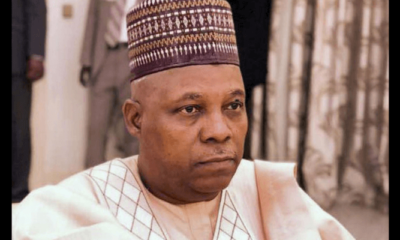

Nigeria’s economy will witness positive changes after painful sacrifice— VP Shettima
-


This Sudan war is too senseless; time we ended it, By Tee Ngugi
-


Nigeria destined to become major global economy under Tinubu— VP Shettima
-


Air Peace, capitalism and national interest, By Dakuku Peterside
-


This is chaos, not governance, and we must stop it, By Tee Ngugi
-


Off we go again with public shows, humbug and clowning, By Jenerali Uliwengu
Strictly Personal
This Sudan war is too senseless; time we ended it, By Tee Ngugi
Published
7 days agoon
April 28, 2024
Why are the Sudanese Armed Forces (SAF) and the paramilitary Rapid Support Forces (RPF) engaged in a vicious struggle? It is not that they have ideological, religious or cultural differences.
Not that people should fight because of these kinds of differences, but we live in a world where social constructions often lead to war and genocide. It is not that either side is fighting to protect democracy. Both sides were instruments of the rapacious dictatorship of Omar el-Bashir, who was overthrown in 2019.
Both are linked to the massacres in Darfur during Bashir’s rule that led to his indictment by the International Criminal Court for crimes against humanity. They both stood by as ordinary, unarmed people took to the streets and forced the removal of the Bashir regime.
None of these entities now fighting to the last Sudanese citizen has any moral authority or constitutional legitimacy to claim power. They both should have been disbanded or fundamentally reformed after the ouster of Bashir.
The SAF and the RSF are fighting to take over power and resources and continue the repression and plunder of the regime they had supported for so long. And, as you can see from news broadcasts, they are both well-versed in violence and plunder.
Since the fighting began in 2023, both sides have been accused of massacres that have left more than 30,000 people dead. Their fighting has displaced close to 10 million people. Their scramble for power has created Sudan’s worst hunger crisis in decades. Millions of refugees have fled into Chad, Ethiopia and South Sudan.
The three countries are dubious places of refuge. Chad is a poor country because of misrule. It also experiences jihadist violence. Ethiopia is still simmering with tensions after a deadly inter-ethnic war.
And South Sudan has never recovered from a deadly ethnic competition for power and resources. African refugees fleeing to countries from which refugees recently fled or continue to flee sums up Africa’s unending crisis of governance.
Africa will continue to suffer these kinds of power struggles, state failure and breakdown of constitutional order until we take strengthening and depersonalising our institutions as a life and death issue. These institutions anchor constitutional order and democratic process.
Strong independent institutions would ensure the continuity of the constitutional order after the president leaves office. As it is, presidents systematically weaken institutions by putting sycophants and incompetent morons in charge. Thus when he leaves office by way of death, ouster or retirement, there is institutional collapse leading to chaos, power struggles and violence. The African Union pretends crises such as the one in Sudan are unfortunate abnormally. However, they are systemic and predictable. Corrupt dictatorships end in chaos and violence.
Tee Ngugi is a Nairobi-based political commentator.
Strictly Personal
Air Peace, capitalism and national interest, By Dakuku Peterside
Published
3 weeks agoon
April 16, 2024
Nigerian corporate influence and that of the West continue to collide. The rationale is straightforward: whereas corporate activity in Europe and America is part of their larger local and foreign policy engagement, privately owned enterprises in Nigeria or commercial interests are not part of Nigeria’s foreign policy ecosystem, neither is there a strong culture of government support for privately owned enterprises’ expansion locally and internationally.
The relationship between Nigerian businesses and foreign policy is important to the national interest. When backing domestic Nigerian companies to compete on a worldwide scale, the government should see it as a lever to drive foreign policy, and national strategic interest, promote trade, enhance national security considerations, and minimize distortion in the domestic market as the foreign airlines were doing, boost GDP, create employment opportunities, and optimize corporate returns for the firms.
Admitted nations do not always interfere directly in their companies’ business and commercial dealings, and there are always exceptions. I can cite two areas of exception: military sales by companies because of their strategic implications and are, therefore, part of foreign and diplomatic policy and processes. The second is where the products or routes of a company have implications for foreign policy. Air Peace falls into the second category in the Lagos – London route.
Two events demonstrate an emerging trend that, if not checked, will disincentivize Nigerian firms from competing in the global marketplace. There are other notable examples, but I am using these two examples because they are very recent and ongoing, and they are typological representations of the need for Nigerian government backing and support for local companies that are playing in a very competitive international market dominated by big foreign companies whose governments are using all forms of foreign policies and diplomacy to support and sustain.
The first is Air Peace. It is the only Nigerian-owned aviation company playing globally and checkmating the dominance of foreign airlines. The most recent advance is the commencement of flights on the Lagos – London route. In Nigeria, foreign airlines are well-established and accustomed to a lack of rivalry, yet a free-market economy depends on the existence of competition. Nigeria has significantly larger airline profits per passenger than other comparable African nations. Insufficient competition has resulted in high ticket costs and poor service quality. It is precisely this jinx that Air Peace is attempting to break.
On March 30, 2024, Air Peace reciprocated the lopsided Bilateral Air Service Agreement, BASA, between Nigeria and the United Kingdom when the local airline began direct flight operations from Lagos to Gatwick Airport in London. This elicited several reactions from foreign airlines backed by their various sovereigns because of their strategic interest. A critical response is the commencement of a price war. Before the Air Peace entry, the price of international flight tickets on the Lagos-London route had soared to as much as N3.5 million for the economy ticket. However, after Air Peace introduced a return economy class ticket priced at N1.2 million, foreign carriers like British Airways, Virgin Atlantic, and Qatar Airways reduced their fares significantly to remain competitive.
In a price war, there is little the government can do. In an open-market competitive situation such as this, our government must not act in a manner that suggests it is antagonistic to foreign players and competitors. There must be an appearance of a level playing field. However, government owes Air Peace protection against foreign competitors backed by their home governments. This is in the overall interest of the Nigerian consumer of goods and services. Competition history in the airspace works where the Consumer Protection Authority in the host country is active. This is almost absent in Nigeria and it is a reason why foreign airlines have been arbitrary in pricing their tickets. Nigerian consumers are often at the mercy of these foreign firms who lack any vista of patriotism and are more inclined to protect the national interest of their governments and countries.
It would not be too much to expect Nigerian companies playing globally to benefit from the protection of the Nigerian government to limit influence peddling by foreign-owned companies. The success of Air Peace should enable a more competitive and sustainable market, allowing domestic players to grow their network and propel Nigeria to the forefront of international aviation.
The second is Proforce, a Nigerian-owned military hardware manufacturing firm active in Rwanda, Chad, Mali, Ghana, Niger, Burkina Faso, and South Sudan. Despite the growing capacity of Proforce in military hardware manufacturing, Nigeria entered two lopsided arrangements with two UAE firms to supply military equipment worth billions of dollars , respectively. Both deals are backed by the UAE government but executed by UAE firms.
These deals on a more extensive web are not unconnected with UAE’s national strategic interest. In pursuit of its strategic national interest, India is pushing Indian firms to supply military equipment to Nigeria. The Nigerian defence equipment market has seen weaker indigenous competitors driven out due to the combination of local manufacturers’ lack of competitive capacity and government patronage of Asian, European, and US firms in the defence equipment manufacturing sector. This is a misnomer and needs to be corrected.
Not only should our government be the primary customer of this firm if its products meet international standards, but it should also support and protect it from the harsh competitive realities of a challenging but strategic market directly linked to our national military procurement ecosystem. The ability to produce military hardware locally is significant to our defence strategy.
This firm and similar companies playing in this strategic defence area must be considered strategic and have a considerable place in Nigeria’s foreign policy calculations. Protecting Nigeria’s interests is the primary reason for our engagement in global diplomacy. The government must deliberately balance national interest with capacity and competence in military hardware purchases. It will not be too much to ask these foreign firms to partner with local companies so we can embed the technology transfer advantages.
Our government must create an environment that enables our local companies to compete globally and ply their trades in various countries. It should be part of the government’s overall economic, strategic growth agenda to identify areas or sectors in which Nigerian companies have a competitive advantage, especially in the sub-region and across Africa and support the companies in these sectors to advance and grow to dominate in the African region with a view to competing globally. Government support in the form of incentives such as competitive grants ,tax credit for consumers ,low-interest capital, patronage, G2G business, operational support, and diplomatic lobbying, amongst others, will alter the competitive landscape. Governments and key government agencies in the west retain the services of lobbying firms in pursuit of its strategic interest.
Nigerian firms’ competitiveness on a global scale can only be enhanced by the support of the Nigerian government. Foreign policy interests should be a key driver of Nigerian trade agreements. How does the Nigerian government support private companies to grow and compete globally? Is it intentionally mapping out growth areas and creating opportunities for Nigerian firms to maximize their potential? Is the government at the domestic level removing bottlenecks and impediments to private company growth, allowing a level playing field for these companies to compete with international companies?
Why is the government patronising foreign firms against local firms if their products are of similar value? Why are Nigerian consumers left to the hands of international companies in some sectors without the government actively supporting the growth of local firms to compete in those sectors? These questions merit honest answers. Nigerian national interest must be the driving factor for our foreign policies, which must cover the private sector, just as is the case with most developed countries. The new global capitalism is not a product of accident or chance; the government has choreographed and shaped it by using foreign policies to support and protect local firms competing globally. Nigeria must learn to do the same to build a strong economy with more jobs.
EDITOR’S PICK
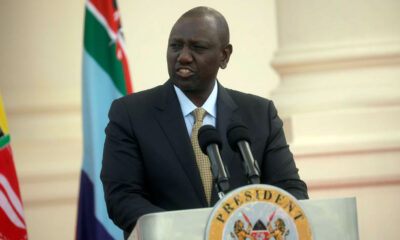

Kenya: President Ruto hints at ‘dire’ weather outlook as Cyclone Hidaya nears
President William Ruto has announced that the severe rains that have been plaguing Kenya for the past several weeks resulting...


Again, Rwanda denies it attacked displaced persons in DR Congo
For the sixteenth time, Rwanda refuted US charges on Saturday that its troops attacked a camp for internally displaced persons...


Nigeria offers oil majors faster exit if …
Oil-rich West African country, Nigeria, has offered major oil companies, such as Exxon Mobil and Shell, that planned to leave...


Nigeria’s Security Exchange chief to meet foreign, local crypto exchanges, others over crypto regulation
On Monday, local and international cryptocurrency exchanges will meet with Dr. Emomotimi Agama, the recently appointed Director General of the...


Rhino Resources, BP-Eni JV sign agreement for Namibia offshore licence
Rhino Resources Namibia and a BP-Eni joint venture have agreed to share a 42.5% stake in a block located in...
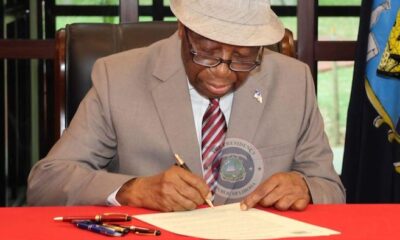

Liberia: President Boakai signs order to create war crimes court
To provide long-overdue justice to those who suffered grave injustices during the two civil wars that raged in Liberia, President...
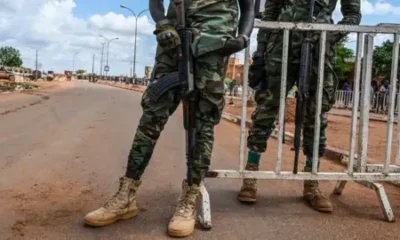

US official accuses Russian troops of entering base housing US military in Niger
According to a senior United States defence official quoted by Reuters, Russian military soldiers have entered an air base in...
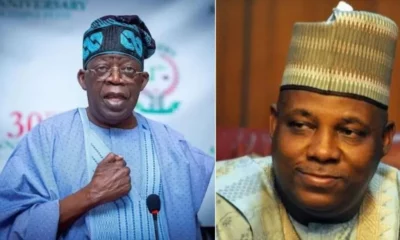

Nigeria’s presidency insists reforms prevented economic collapse
Nigeria’s presidency on Thursday reiterated that the current administration’s economic reforms of the past one year “saved the life of...
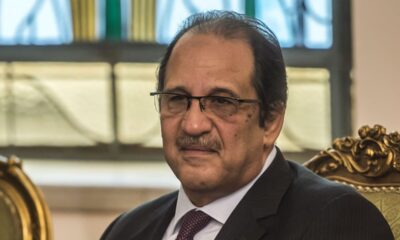

Hamas leader in talks for Gaza ceasefire with Egypt, Qatar
Ismail Haniyeh, the leader of Hamas, spoke with Abbas Kamel, the head of Egypt’s security services, and Mohammed bin Abdulrahman...
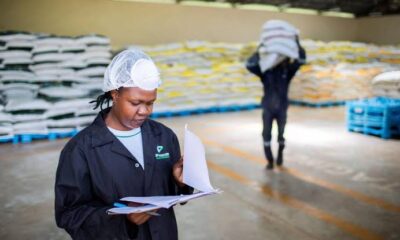

Kenya agri-tech startup iProcure placed under administration over unpaid debts
Kenyan agri-tech startup, iProcure, has been placed under administration due to its inability to clear up undisclosed debts. The advisory...
Trending
-
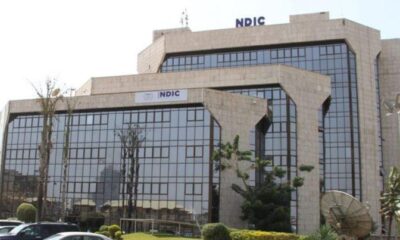
 VenturesNow2 days ago
VenturesNow2 days agoNigeria’s Insurance Corporation raises maximum deposit coverage from N500k to N5m
-

 Sports2 days ago
Sports2 days agoLiverpool legend Graham Souness wants ‘selfish’ Salah to leave club
-

 VenturesNow13 hours ago
VenturesNow13 hours agoNigeria offers oil majors faster exit if …
-

 Culture2 days ago
Culture2 days agoEgypt unveils stamp to mark 100th anniversary of relationship with Brazil


